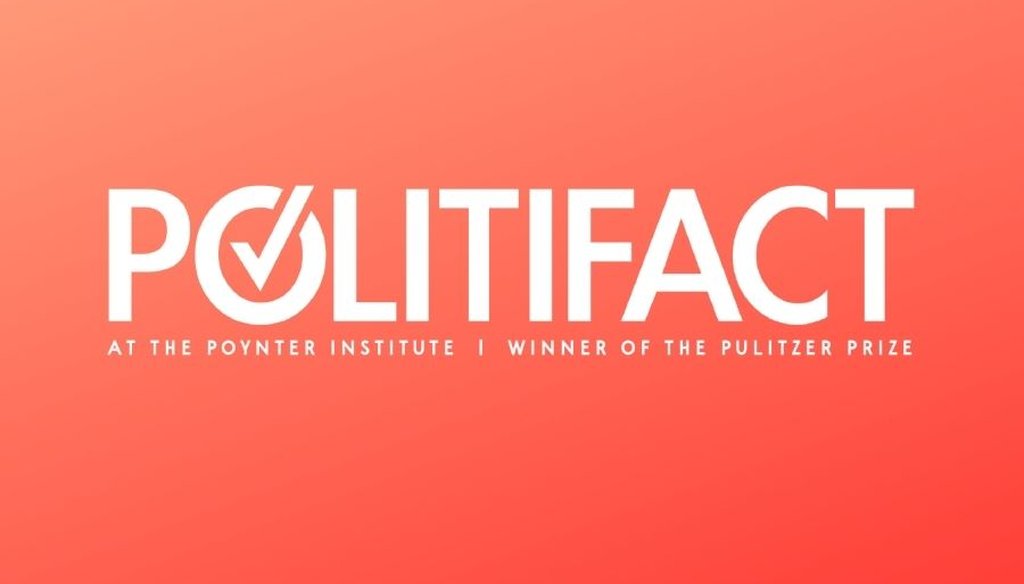

Our only agenda is to publish the truth so you can be an informed participant in democracy.
We need your help.


Assemblyman John Wisniewski, and other Democratic lawmakers, talk about the Port Authority of New York and New Jersey.
Hudson River tolls are not a drop in the bucket. Crossing the waterway sets motorists paying cash back $12.
For some New Jerseyans, commuting to work in New York costs more than they pay in New Jersey income taxes, according to Assemblyman John Wisniewski, a Democrat from Middlesex County.
"There's one statistic that says if you're earning under $100,000 a year and you commute to New York every day you pay more to the Port Authority in tolls than you pay to the state of New Jersey in income tax," Wisniewski, the chairman of the state Democratic Party, said in a YouTube video posted on April 13. "That's outrageous and that's got to be changed."
PolitiFact New Jersey found Wisniewski’s statement is accurate because people who earn all of their income from wages in New York won’t pay New Jersey income taxes.
Wisniewski said his statement refers to a married couple with children. When the assemblyman’s office initially calculated the statistic it was based on a couple who earned $80,000 a year and had two children and one partner commuted to work in New York, using E-ZPass and taking two weeks of vacation, according to Tim O’Donovan, Wisniewski’s communication director.
But a broad group of commuters pay more tolls than New Jersey income taxes.
New Jersey residents who work in New York file tax returns with both states. New Jersey provides a credit that varies depending on income to residents for taxes paid to New York.
Any resident who only has income from wages in New York "will always get a full credit," said Neil Becourtney, a certified public accountant and tax partner at J.H. Cohn LLP’s Roseland office. "They will end up with no New Jersey income tax."
Ron West, professor of taxation and law at Fairleigh Dickinson University, noted that if income is earned in New Jersey and New York, there "could be a situation where the credit will not fully offset the New Jersey tax and there would be something owed."
Still, even if residents owe nothing to New Jersey, West said, "they’re paying tax, but New Jersey is not getting their hands on it." Instead, New York is.
For example, a married couple who earns $100,000 combined would owe New York more than $5,000 in income taxes, factoring in personal exemptions but no other deductions. Had that income been earned in New Jersey, the couple would owe roughly $2,600.
The credit offsets the couple’s New Jersey taxes. So, they owe nothing to their home state, but they still pay New York taxes.
O’Donovan said Wisniewski’s office also looked at what residents would owe New Jersey without the credit.
By that measure, a married couple with a taxable income of less than $94,950 would pay more in tolls than taxes if one partner commuted every weekday using E-ZPass. The same applies for an individual with a taxable income of less than $71,750.
Driving to New York five days a week, 52 weeks a year, would cost an E-ZPass user $2,470 in tolls annually. Cash users would pay $3,120. Annual toll costs drop about $100 with two weeks’ vacation taken.
Our ruling
"If you're earning under $100,000 a year and you commute to New York every day you pay more to the Port Authority in tolls than you pay to the state of New Jersey in income tax," Wisniewski said.
If New Jersey residents earn all their income from wages in New York, they would owe New Jersey nothing because a credit offsets their tax liability.
They’d still pay income taxes to New York, but Wisniewski specifically said taxes paid to New Jersey.
We rate this claim True.
To comment on this story, go to NJ.com.
New Jersey Assembly Democrats’ YouTube Account, Assembly Transportation Committee Members on Authorizing Use of Subpoena Powers on Port Authority, April 13, 2012
Port Authority of New York and New Jersey, Bridges & Tunnels: Tolls, accessed April 16, 2012
Interview with Tim O’Donovan, communications director for Assemblyman John Wisniewski, April 17 and 18, 2012
Interview with Assemblyman John Wisniewski, April 18, 2012
Interview with Ron West, professor of taxation and law at Fairleigh Dickinson University, April 18, 2012
Interview with Neil Becourtney, certified public accountant with and tax partner at J.H. Cohn LLP's Roseland, N.J. office, April 19, 2012
Interview with Andy Pratt, spokesman for the New Jersey Treasury Department, April 18, 2012
New Jersey Treasury Department, Tax Rates, accessed Jan. 18, 2012
New Jersey Treasury Department, Tax Table: 2011 Returns, accessed Jan. 18, 2012
New Jersey Treasury Department, Tax Rate Schedules: 2011 Returns, Jan. 18, 2012
State of New Jersey, Income Tax - Resident Return: NJ-1040, accessed April 16, 2012
State of New Jersey, 2011 Form NJ-1040: Filing Information, accessed April 17, 2012
State of New Jersey, Schedule A, accessed April 17, 2012
The Star-Ledger, N.J. Dems approve subpoena power over Port Authority; Christie spokesman blasts move as 'partisan sideshow', April 12, 2012
New Jersey Department of Treasury, NJ Income Tax - Credit for Taxes Paid to Other Jurisdictions, accessed April 17, 2012
State of New Jersey, 2011 Form NJ-1040 Line-by-Line Instructions, accessed April 17, 2012
The New York State Department of Taxation and Finance, E-file your IT-203, accessed April 17, 2012
New York State Department of Taxation and Finance, Instructions for Form IT-203, accessed April 17, 2012
In a world of wild talk and fake news, help us stand up for the facts.
